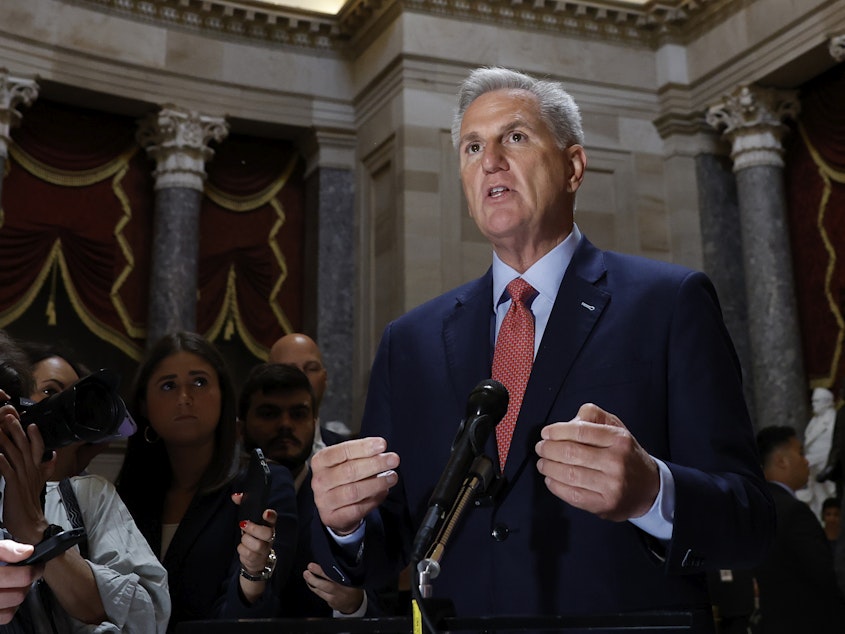CBO says debt ceiling deal would cut deficits by $1.5 trillion over the next decade

Congressional bean counters estimate that an agreement to limit government spending in exchange for raising the federal borrowing limit would cut federal deficits by about $1.5 trillion over the next decade.
The forecast comes as House lawmakers are preparing to vote on the measure Wednesday after President Biden and House Speaker Kevin McCarthy agreed on the deal over the weekend.
Absent congressional action to lift the debt limit, the government could run short of cash in less than a week, leading to devastating consequences for global markets and the global economy.
Most of the estimated reduction in the deficit from the deal would come from caps on discretionary spending other than defense — a relatively small slice of the overall federal budget
Limiting that spending for the next two years would save an estimated $1.3 trillion over the next decade, with another $188 billion in savings from reduced interest costs, according to the projections from the Congressional Budget Office released late Tuesday.
Sponsored
IRS set to lose some funding, leading to less tax collection
Other parts of the agreement would worsen the federal deficit, however.
A plan to cut $1.4 billion in spending on the Internal Revenue Service, for example, would reduce tax collections by an estimated $2.3 billion — for a net loss to the government of $900 million.
The actual loss in tax revenue could be much larger, since the Biden administration is planning to "repurpose" another $20 billion of the $80 billion that had been set aside for the IRS as part of the Inflation Reduction Act.
In addition, changes to the food stamp program would cost the government an estimated $2.1 billion over the next decade.
Sponsored
The agreement adds new work requirements for older people receiving food stamps, but also adds new exemptions from work requirements for veterans, people experiencing homelessness, and young people recently out of foster care.
CBO projects the number of people made eligible for food stamps by the new exemptions would outweigh the number who might be dropped from the rolls. [Copyright 2023 NPR]



